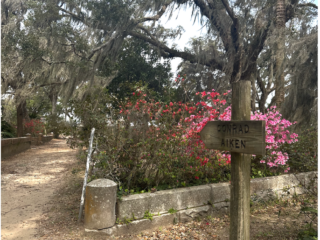by Mallory Sweeney
Although often pictured sporting his signature cocked, off-white fedora, Walter Mosley proves through his writing that he is certainly capable of wearing different hats. Through a variety of genres, Mosley constantly explores black culture in America–noting the growth of a people who continue to redefine their role as “Americans.” While best known for his mystery/crime series featuring the vibrant detective Easy Rawlins (also popularized by the 1995 film Devil in a Blue Dress starring Denzel Washington), Mosley’s writing refuses to be confined.
Born in 1952 in South Central Los Angeles, Mosley was the son of a black janitor and an Eastern European Jewish secretary. A member of the Afro-American Traveling Actors Association from a young age, Mosley clearly remembers the heated race-riots of the 1960s:
The Watts riots are a metaphor for all of the rage that existed in all of the hearts of almost every African American. And that’s what you have to deal with. And that’s how America responded.
Citing Alice Walker’s The Color Purple as the single greatest literary influence of his life, Mosley also deeply admires Toni Morrison. But Mosley credits his parents’ influence as the largest component of his personality–citing the fact that people are often as bold as to question, as he says, “Where does your white side come from?”
The author is quick to correct them though, explaining very proudly that it is his, rather his Jewish heritage. While he was growing up, Mosley’s mother made her only son aware that her family was persecuted for being Jewish communists, a fact which perhaps prompted Mosley to understand that side of his family as, what he calls, the “Negroes of Europe.” For Mosley, his mother’s story was another example of the will to rise above oppression. He transferred these sentiments into the 1991 installment of the Rawlins books, A Red Death, a mystery in which Easy spies on a Polish-Jewish communist, finding himself drawn to him in moving moments of mixed suspicion and sympathy.
Mosley also deeply admired his father, a self-educated man whom he referred to as “a black Socrates,” a term which would eventually give him the idea for his Socrates Fortlow book series.
Initially receiving a degree in computer programming, Mosley only began writing in the 80s, after taking a creative writing class in which the instructor encouraged him to write based upon his interesting background. He was challenged when he attempted to publish his first book, as he was told, “White people don’t read about black people, black women don’t like black men, and black men don’t read. Who’s going to read this book?”
Undaunted, Mosley eventually found a small independent publishing house which primarily worked with black authors.
Mosley’s writing is consistently imbued with high-stakes and memorable characters. Though gravitating toward mystery, he has experimented with Afro futurist science fiction as well. In novels such as Blue Light (1998), Mosley writes about characters who explore the black experience in conjunction with science and technology, as a means of finding new strategies to overcome oppression.
In his critically acclaimed Easy Rawlins books (the latest of which is Cinnamon Kiss released in 2005), we follow in the footsteps of Easy, a black World War II Veteran (again, like Mosley’s father), who is a hard detective facing racism and crime in the underbelly of 1950s/60s South Central L.A.
Despite the invigorating drama that unfolds in each of the Rawlins books, Easy has always been, for Mosley, an example of one who overcomes and finds a means of dealing with the hatred surrounding him. Easy, who was once a janitor, owns his own home, reads philosophy and has adopted children, yet he still faces the prejudices of the world he lives in.
In 2004’s Little Scarlet, Rawlins solves a murder which occurs soon after the Watt race-riots through his cunning street-wise attitude, but also by making an uneasy (and symbolic) pact with the predominantly white police force. Through Easy’s misgivings, Mosley clearly channels the rage and suffering of black character. “There is a complexity to rage,” Mosley has explained, asserting that the feeling is two-fold. He describes it as a self-loathing and hatred, springing from constantly being told by the authority that you are “no good” combined the knowledge that it is not true and you deserve better. Mosley explains that he applies the complexity specifically to the black struggle, but it is truly universal.
More recently, Mosley edited an edition of The Best American Short Stories, which proved to be an honor and a challenge. In completing his task, Mosley strove to exhibit a new kind of anthology, making sure many genres were expressed and an eclectic mix of writers were included from across the nation.
In 2005 his young adult novel 47, an engrossing narrative mix of speculation and history about a young slave boy, was awarded the Carl Brandon Society Parallax award. Mosley wrote 47 as a message to black children with the hopes of, as he says, “creating a character that rises above his role as a victim by becoming a victorious hero.”
But Mosley himself will tell you, his books are always for everyone. In a recent interview, the author explained that he feels Black History month speaks to all of America because, “It is American history,” and the concept of celebrating Black History Month must be used as a guideline for fighting other forms of oppression that still exist in America today.








